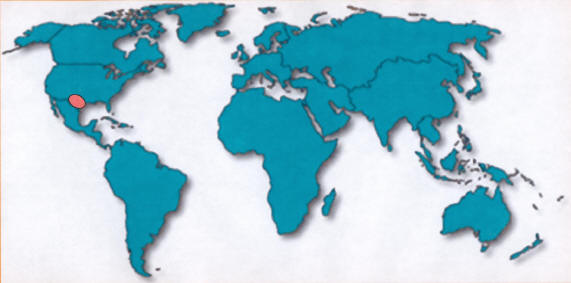Does India have a despotic government? I don't think so, and they are on the top of overpopulating Earth.
You need to stop taking static snapshots and instead look at trends. The birthrate in India has fallen dramatically, just as it has everywhere else as democracy, education, and post-industrial technology spread. These days most educated couples in India have only 2-3 children, and the percentage of the Indian population who can be described as "educated" is growing rapidly. Even that 2-3 rate is as much a nod to the entreaties of their parents' generation as their own desire. When these people become the grandparents they won't be nagging the younger generation to overpopulate.
Also, very poor African countries also have a high rate of birth, so misery itself doesn't stop overpopulation.
You're certainly not quoting me on that one. Specific types of misery are
causes of overpopulation. Without pensions or a social security system, people need children to take care of them when they retire. With no opportunities for cultural or recreational pursuits, people have nothing to do at night except stay home and make more babies. Etc.
Yes, up through the 19th century, the growth rate was lower in impoverished countries because they tended to have poor sanitation, nutrition and medical care so most children didn't reach puberty. But once we "gifted" them with antibiotics, vaccines, and water treatment plants, without building the
economic infrastructure that would have weaned them off of their traditional way of life, those children all lived to have children of their own and their populations exploded.
Never forget the Law Of Unintended Consequences: "You can never do
just one thing."
I am still not sure, despite that, that "overpopulation" is the bugaboo some claim. First the rate of increase in the population of the world is falling. The absolute number of people is still increasing, but each year it increases by a bit less, which suggests a leveling off.
I've posted the stats on this thread and several others. The second derivative of population went negative in the early 1980s. It's now universally predicted that the first derivative will go negative by the end of this century: in other words, the birth rate will fall below replacement level of 2.1 children per adult female, and the population will start to shrink--after just barely reaching ten billion, a number which, although it seems scary to us, will be quite manageable once all the despotic governments are gone and people can do a better job of caring for themselvevs.
Not all of the US's population live on Western standard's level.
No, but slightly better management of our economy (by both government and industry leaders) would bring everybody (except the crazies who avoid interacting with the authorities) up to a satisfactory level without confiscating any rich kid's trust fund.
The problem is that the people who run both the government and industry are morons. One of the loudest complaints we hear today is that taxes are too high. Huh??? Taxes are at their lowest level in more than a generation. No modern, high-tech nation can possibly keep itself going with the paltry taxes the U.S. collects. That complaint is not just selfish, but ignorant.
On the other hand the other complaint commonly heard is that the income gap in the USA is too great, and paradoxically no one listens to this one. In Germany, the average CEO makes about ten times as much money as his average employee. There's absolutely no problem living a glamorous lifestyle on that much money. But in the USA, the average CEO makes more than
two hundred times as much as his average employee!
And these guys think their taxes are too high!!!
When you hear a
Libertarian complaining that some people are way too rich, others are way too poor, and taxes need to be raised,
you know that your country is completely fucked!
Note that there are a slew of other empty-ass states to boot: Montana, Idaho, Wyoming, etc.
California is universally regarded as a crowded place. Yet about 75% of the state's land is farm, forest or desert.
Then there's pretty much all of Canada and Australia, etc.
Virtually all of the countries in the Western Hemisphere are sparsely populated by the standards of the Eastern Hemisphere. Mexico has gigantic farming regions. So does Argentina.
But just wait until the current warming cycle melts the tundra. Greenland and Siberia will become breadbaskets!
I know plenty about water already.
That's a problem that will solve itself too. When the current ice age finally comes to an end, which is defined as "no permanent ice anywhere," with the icecaps and glaciers melted and the average temperature a few degrees higher, relative humidity rises and average global rainfall increases. There will still be weather "patterns" and a few dry places will still exist, but on the average there will be no shortage of water or food.
. . . . and maybe reconsider whether lawns are an appropriate type of landscaping for arid climates in the first place.
And everybody can have a lawn. With a fish pond and their own pet capybara lolling in it.




